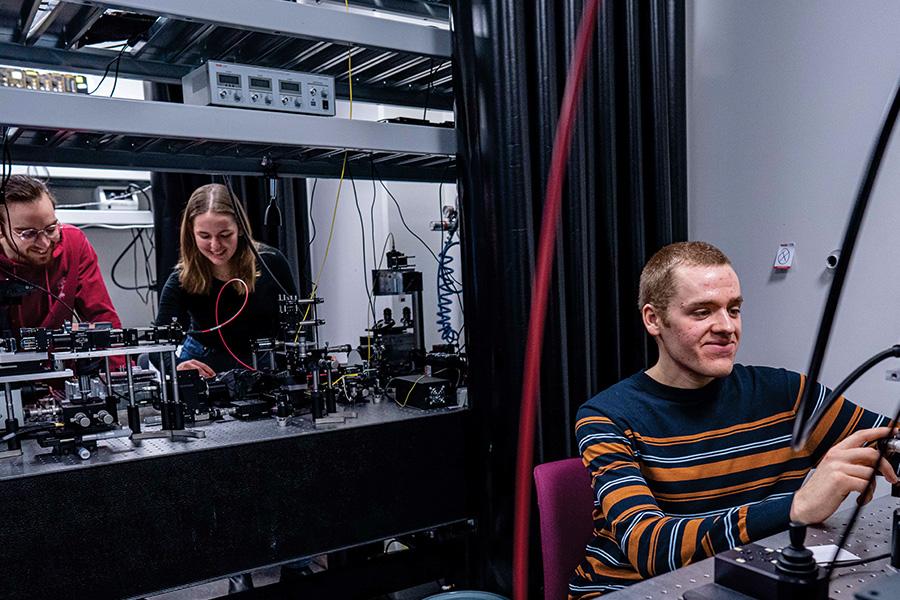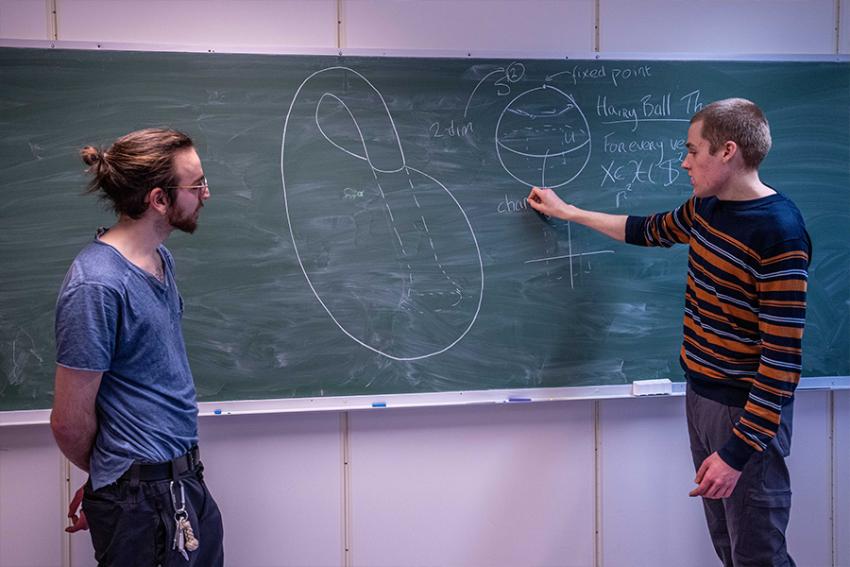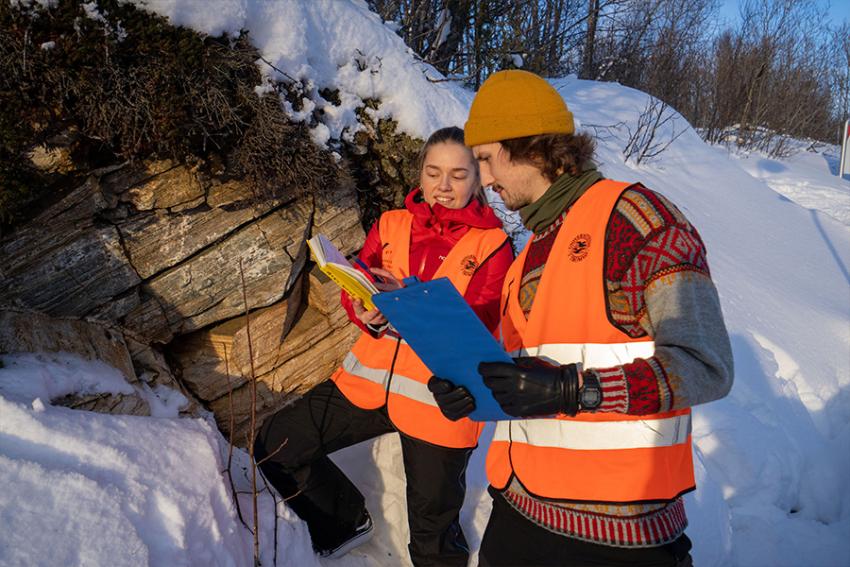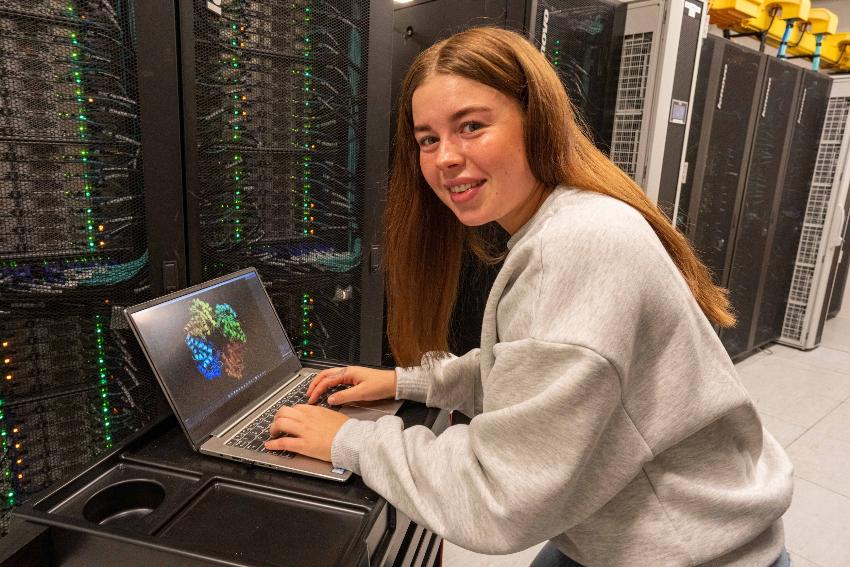Explore the frontiers of physics, from nanoscopy to space science, with a master’s at UiT. Tackle global challenges like climate change and sustainable energy using advanced modeling and remote sensing. This program offers broad opportunities in both theoretical and applied physics, preparing you for impactful careers in research, technology, and innovation.
Bachelor’s degree in Physics (180 ECTS) or equivalent qualifications. An additional requirement is specialization in physics worth the equivalent of minimum 80 ECTS.
Applicants must have a minimum grade average comparable to a Norwegian C (2.5) in the ECTS scale, see the UiT webpage for International admissions for more information on how the point average is calculated.
Applicants with education from non-Nordic countries must document English language proficiency. You will find more information on English language requirements on the UiT webpage for International admissions.
Admissions capacity spring 2026 (nordic applicants):
5 places
Admissions capasity fall 2026 (all applicants):
10 places
Applicants from Norway or Nordic countries:
- Applicants from Norway or Nordic countries can apply for admission to the program twice a year.
- The application deadline is April 15th for admission to the fall semester
- The application deadline is November 1st for admission to the spring semester
- Her finner du all informasjon knyttet til søking og opptak.
Applicants within EU/EEA/Switzerland:
You will find more information about admission for EU/EAA applicants here.
Applicants outside EU/EEA/Switzerland and the Nordic countries:
- Non-EU students must be prepared to pay tuition fees.
- You will find more information about admission for Non-EU/EEA applicants here
- Nordic applicants: 4008
- EU / EEA / Switzerland applicants: 7103
- Non-EU/EAA applicants: 2022
Program description
The Master of Science in Physics is a disciplinary master's degree. The program provides the opportunity for taking specialization courses from a relatively large range and offered by several departments, followed by a master's thesis on a chosen topic (60 ECTS). A common course on sustainable innovation will give the students tools for creativity, innovation, project and teamwork. The program will provide students with a solid background and good knowledge of methods for conducting scientific work.
Learning outcomes
A Master´s degree in Physics will give you the following;
Knowledge
The candidate:
- Has a deep understanding of a range of techniques and methods used in advanced physics.
- Can apply advanced mathematical and statistical methods for analysis of physical problems, and on new areas of research.
- Has knowledge about scientific methods and how to conduct scientific research, with in-depth knowledge of how research is performed in state-of-the-art physics.
- Has advanced knowledge in one or more of the following fields: fusion physics, climate physics, space physics, earth observation, renewable energy and machine learning.
Skills
The candidate:
- Can evaluate and analyse large amounts of scientific data in a critical manner
- Can model advanced physical processes and use suitable programming tools and software for solving physical problems numerically
- Can work independently with problem solving following the scientific method.
- Can evaluate and analyse published theories, methods and experiments in the physics literature.
- Can carry out an independent, limited project under supervision in physics or related fields.
Competences
The candidate:
- Can communicate an independent work with scientific terminology, written and orally
- Can analyse academic, professional and ethical problems in the field of physics.
- Can work in multi-disciplinary groups with complex problems regarding sustainable innovation
- Can produce a well-structured presentation of an extensive scientific work.
Job prospectives
The program leads to a wide variety of career options both domestic and abroad within research, industry and administration.
You will have the opportunity to work with:
- Earth observation
- Application and system development
- Climate and energy management
- Consulting
- Environmental monitoring
- Climate modelling
- Sensor technology
- Rocket and space research
- Statistic analysis
Degree Name
Master of Science in PhysicsAccess to further studies
Completed Master's degree studies qualify for admission to PhD-studies in physics, depending on satisfactory marks in the Master's and Bachelor's degree. PhD-studies in physics are offered at UiT The Arctic University of Norway.
Relaterte yrker
Studieplan
Language of instruction
Language of instruction is English and all of the syllabus material is in English. Examination questions will be given in English, but may be answered either in English or in a Scandinavian language.
In addition, the Master's thesis may be written either in English or in a Scandinavian language.
Teaching and assessment
The study program includes a variety of teaching methods. Courses offered in the program have lectures, where theory and academic themes are discussed, in combination with exercises. Courses can also include laboratory work, pc-lab, work in the field or a combination of these.
Mandatory coursework can be included in a course. Approved assignments give access to the exam. The examination structure differs between the courses, including written examination, reports, presentations and oral examination, and combinations of these methods.
The master’s thesis is an individual research project performed under supervision. If the thesis involves work in a laboratory, in the field or on a research cruise, it is mandatory to conduct necessary safety courses prior to commencing this work.
Exchange studies abroad or at the University Centre in Svalbard (UNIS) can be recognized in the master’s degree if recommended by your supervisor, and only if the external courses are validated prior to departure.
For an overview of relevant courses at UNIS, please contact the administration at The Department of Physics and Technology.
For studies abroad, there are several exchange agreements to a broad range of universities. For more information, see the exchange agreements.
Studiesteder du kan utveksle til

Rune Grand Graversen
Professor / Gruppeleder Modellering av komplekse systemer
Elena Shvetsova
Vitenskapelig assistentAndre studier du kanskje vil like
Vil du vite hvordan det er å være student ved UiT? Følg @uitstudent på Instagram eller TikTok, hvor studenter deler fra livet på universitetet. Her får du praktiske tips om studier og studentliv, nyttig informasjon om campus og muligheten til å stille spørsmål om alt du lurer på.
For mer informasjon om studietilbud, forskning og muligheter direkte fra UiT, kan du følge @uitnorgesarktiske på Instagram eller TikTok. Her finner du offisielle oppdateringer og innsikt i hva universitetet har å tilby.






